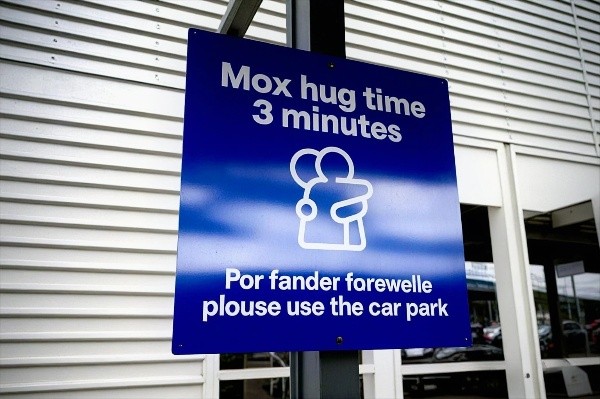Iran’s Plan to Strike Back Against the U.S.
Iran’s Military Preparations Following U.S. Attacks
Loading...

Measure intended to prevent extended embraces from causing traffic jams, but airport won’t have ‘hug police’.
A Quirky Solution to Farewell Traffic Jams
In an unconventional move, Dunedin Airport in New Zealand has introduced a three-minute limit on farewell hugs, a decision aimed at maintaining smooth traffic flow at the airport. Announced by CEO Dan De Bono, this regulation, which came into effect in September, is designed to prevent long embraces from causing congestion at the airport's drop-off area.
Embracing Change: The Rationale Behind the Limit
According to De Bono, the new rule was established to ensure that the airport operates efficiently, particularly during peak travel times. A sign has been installed in the designated drop-off area, clearly stating "Max hug time three minutes." For those who wish to indulge in more heartfelt farewells, the sign suggests moving to the airport’s car park to avoid disrupting traffic.
The decision has sparked a lively debate on social media, with reactions ranging from outrage to support. De Bono noted that some users accused the airport of infringing on basic human rights by limiting the duration of a hug. However, he also mentioned that many have welcomed the initiative, appreciating the light-hearted approach to a common problem.
A Unique Approach to Passenger Flow Management
Dunedin Airport, serving a city of approximately 135,000 people on New Zealand's South Island, opted for this "quirky" solution instead of the more punitive measures seen at other airports. For instance, some airports in the UK impose fees or enforce wheel clamping for vehicles parked in drop-off zones, regardless of how briefly they are stopped. De Bono emphasized that the three-minute limit is a more palatable way to encourage efficiency without resorting to fines or penalties.
“Three minutes is plenty of time to pull up, say farewell to your loved ones, and move on,” De Bono explained. He believes that this time frame strikes a balance between allowing passengers to express their emotions while also keeping the traffic flowing smoothly. In fact, he mentioned that a hug lasting just 20 seconds is sufficient to release beneficial hormones like oxytocin and serotonin, promoting well-being.
The Reality of Enforcement: No 'Hug Police' in Sight
While the airport has implemented this time limit, De Bono clarified that it would not be strictly enforced. The intention is not to create a policing atmosphere but rather to encourage people to adhere to the guideline. “We do not have hug police,” he said, adding that airport staff will simply remind passengers to move to the car park if they exceed the time limit.
This light-hearted approach to airport operations has resonated with some travelers, who appreciate the airport's effort to create a more pleasant and efficient experience. As the new hug policy continues to draw attention online, it serves as a reminder that even the most mundane aspects of travel can spark conversation and creativity.
In conclusion, Dunedin Airport’s three-minute hug limit is a novel attempt to address traffic issues while maintaining a sense of warmth and connection among travelers. As airports around the world grapple with congestion and efficiency, Dunedin's quirky solution may just set a playful precedent for others to follow.
BMM - MBA
Iran’s Military Preparations Following U.S. Attacks
Troops remain in five strategic locations, raising fears of renewed tensions and long-term occupation.
Opposition forces have taken control of the capital after a significant offensive. Here is how it unravelled.
